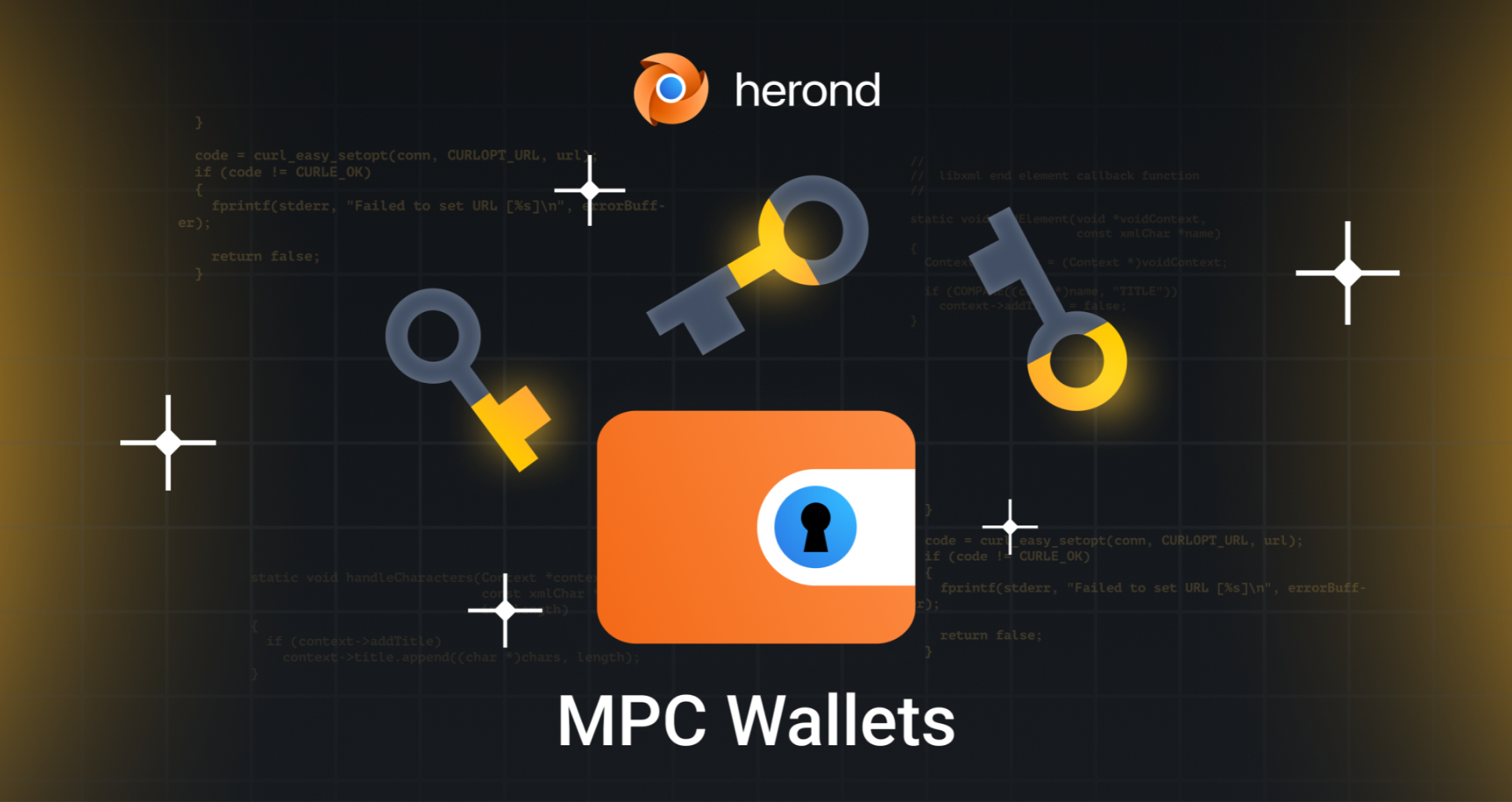What are MPC Wallets?
MPC stands for Multi-Party Computation, where multiple parties that hold separate private data, evaluate a computation without disclosing the confidential information. Applying this technology to digital wallets: with MPC Wallets, the private keys are broken down into multiple shares, encrypted, each held by a separate party. This means the private keys are not stored in one place, but across multiple parties in different locations.
Traditionally, private keys are mostly stored in either hot or cold wallets, for example:
- Hot wallets: Metamask, Trust Wallet, exchanges, etc.
- Cold wallets: Ledger, Trezor, etc.
However, with these storage methods, the keys are at risk of Single Point of Compromise (SPoC), and are vulnerable to attacks. In these cases, the hacker only needs to successfully attack one point of compromise, and the private keys will be gone, along with the assets stored inside those wallets.
How does an MPC Wallet work?
In simple terms, here’s how MPC works:
- A number of participants will each hold a piece of private data;
- The participants can use their private data to compute a public function, while keeping their own pieces of data private.
For example, considering you and two other friends want to know who has the highest salary, while keeping your specific salaries private. Each of you can give your salary details to a mutual trusted friend, then he or she can determine the highest one without revealing each person’s income.
The same applies to private keys in MPC Wallets:
- Your Private Keys will be divided in multiple encrypted parts, decentralized and independently held by multiple parties, each blind to another;
- When the key is needed, MPC is required to confirm that all parties (or a certain number of parties) approve the request before it is executed;
- This ensures no individual can collect all pieces to form the complete private key, while also preventing hackers from making transactions, even when they have the control over the user’s device.
Some notable MPC wallets
Herond Wallet
Herond Wallet is a multi-chain, non-custodial MPC Wallet for digital asset management. The wallet is built into Herond Browser, designed to seamlessly onboard millions of Web 2 users to Web 3, with a friendly and intuitive interface.
Herond Wallet uses Web3Auth for MPC, which provides reliable Web 3 infrastructure, also trusted by big names in both Web 2 and Web 3, such as Ubisoft, Universal Studios, Animoca Brands, Binance…
The best thing about Herond Wallet is, your account and assets are always recoverable using your security question and Herond Account, even if you lose your original private keys.
To understand further about Herond Wallet, you can read our blog post here!
OKX Wallet
OKX Wallet is also a multi-chain MPC wallet, an extension of the rising OKX exchange. The wallet employs biometrics authentication and email verification as part of the security layers, while still remaining a non-custodial wallet. This ensures that all assets stored in the OKX Wallet are safe, even when the exchange is compromised.
OKX Wallet also offers direct access to DEXs and DApps, however, the UI may seem a little complex for new users. It is recommended that users get familiar with basic wallets before trying more advanced features.
Zengo Wallet
If you want a more compact solution, Zengo is also one of the non-custodial mobile MPC wallets with high security.
Zengo Wallet is designed with 3FA to remove private keys, while allowing users to recover their wallets whenever needed. The app has also been mentioned by notable names in the market, however, keep in mind that it is only limited to mobile users.
Zengo Wallet has also supported popular blockchains and is generally easy to use. If you’re only looking to manage assets and access DApps on mobile devices, this is also an option worth checking out!







